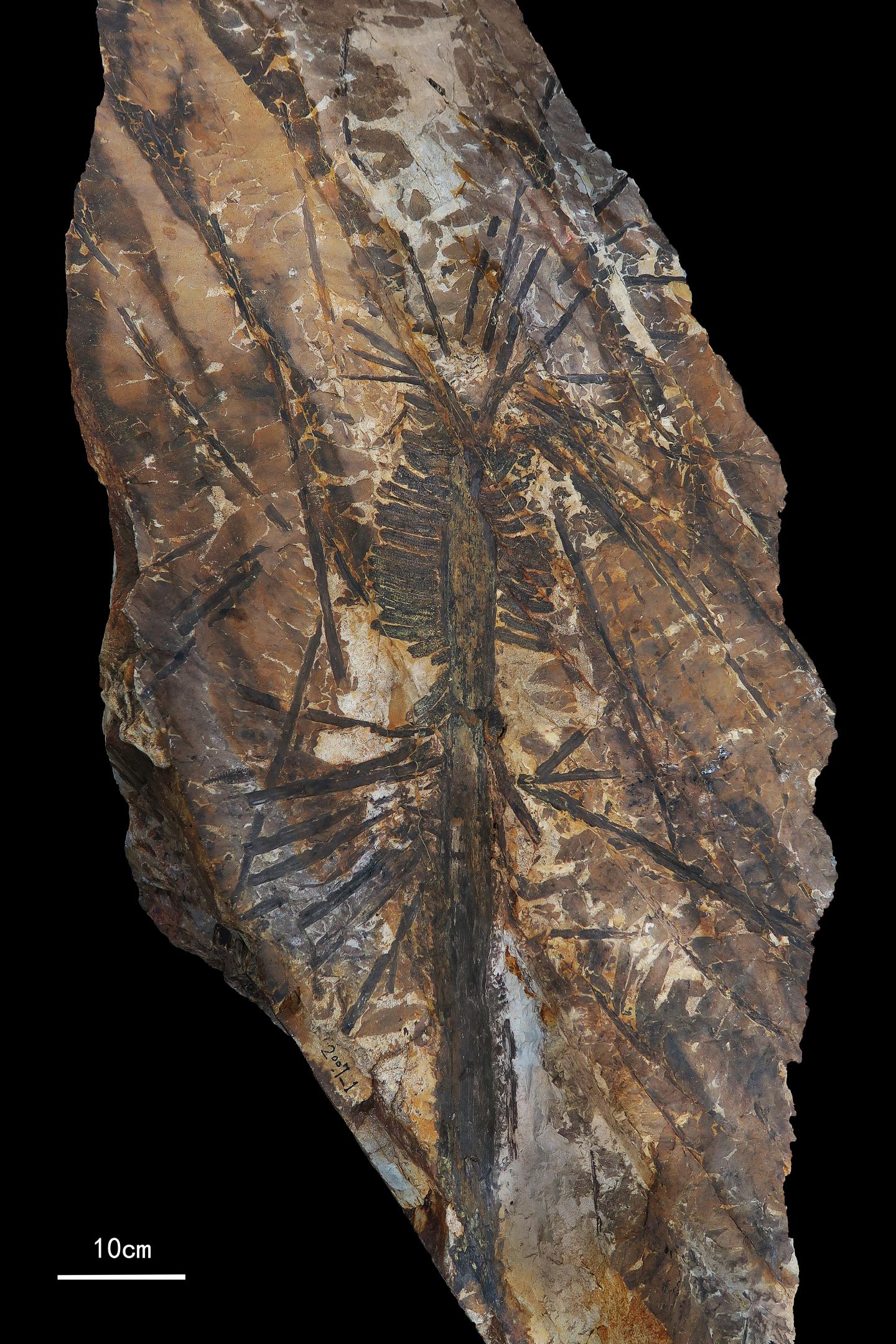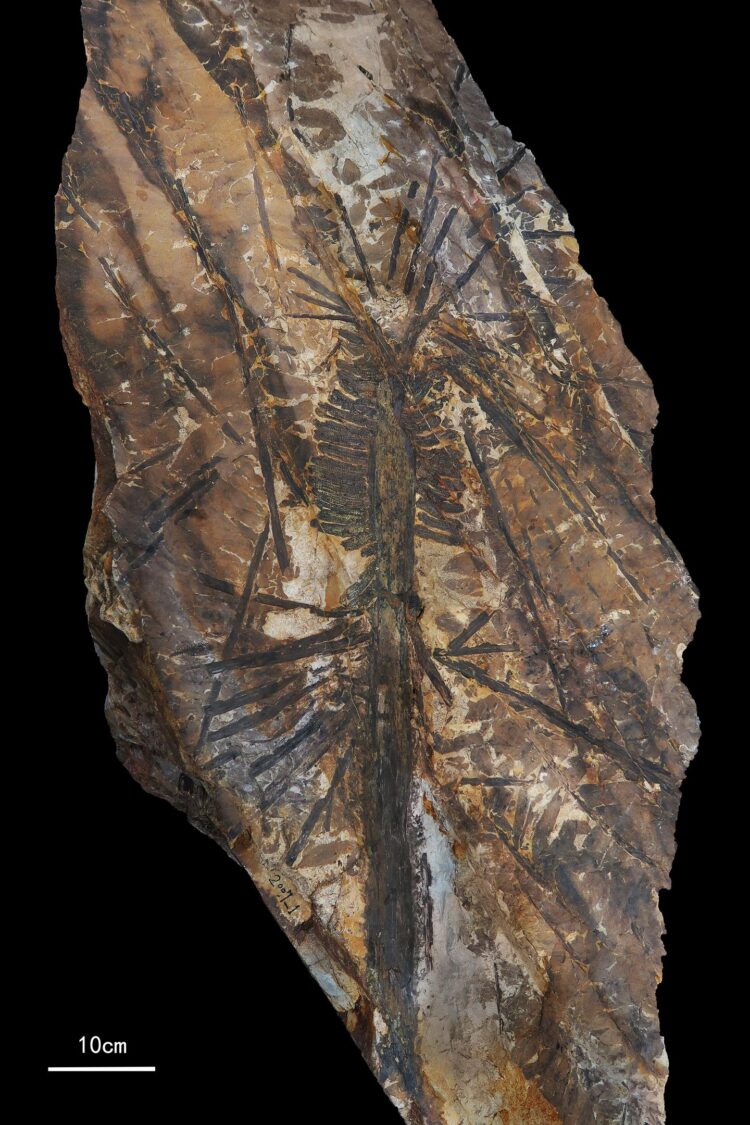
Credit: NIGPAS
A recent study on spectacular fossil plants preserved in a volcanic ash fall deposit–known as China’s “vegetational Pompeii,” in Inner Mongolia, China–has resolved a mystery that puzzled palaeontology for over a century: What are Noeggerathiales?
The study, published in PNAS on March 8, was led by Prof. WANG Jun from the Nanjing Institute of Geology and Palaeontology of the Chinese Academy of Sciences (NIGPAS) and by Prof. David Dilcher from Indiana University (USA). Researchers from the UK, Czech Republic and Austria were also involved.
The researchers confirmed that Noeggerathiales had the spore propagation mode of ferns and the vascular tissue of seed plants. They belonged to a sister group of seed plants, the former gymnosperm.
Noeggerathiales were important peat-forming plants that lived approximately 325-251 million years ago. Although they were first recognized as a distinct plant group in the 1930s, scientists have long argued over their relationships with other plant groups. As a result, they were considered an evolutionary dead end.
The researchers studied complete plants preserved in a 66-cm-thick bed of volcanic ash that fell 298 million years ago and smothered all the plants growing in a swamp. The ash prevented the fossils from being consumed by other organisms or decaying and thus preserved many complete individuals.
From these complete plants, the scientists reconstructed a new species of Noeggerathiales named Paratingia wuhaia that finally allowed the groups affinity and evolutionary importance to be determined.
These results show for the first time that Noeggerathiales were advanced members of the evolutionary lineage from which seed plants evolved. This is important as it shows Noeggerathiales are more closely related to seed plants than they are to other fern groups, and Noeggerathiales can no longer be considered an evolutionary dead end.
The study also shows that the ancestral lineage from which seed plants evolved diversified alongside the earliest seed plant radiation during the Devonian, Carboniferous and Permian periods and did not rapidly die out as previously thought.
Noeggerathiales are now recognized as an advanced group of spore plant that evolved complex cone-like structures from modified leaves. Despite their reproductive sophistication, however, they were victims of profound environmental and climate changes during the Permian-Triassic mass extinction approximately 251 million years ago that destroyed swamp ecosystems globally.
The “vegetational Pompeii” is certainly a fossil Lagerstätte, preserving a large number of materials that have huge potential for resolving mysteries in the area of palaeobotany.
“The whole-plant Paratingia wuhaia reconstructed here represents a tip of the iceberg. The ongoing research based on the fossils from the ‘vegetational Pompeii’ may bring about more and more reconstruction of ancient plants,” said Prof. WANG.
The fossil collection from the “vegetational Pompeii” represents the largest number of plant fossils describing a coal-forming forest. Meanwhile, the research group has conducted the largest actual reconstruction of an ancient peat-forming swamp in the world.
###
Media Contact
LIU Yun
[email protected]
Related Journal Article
http://dx.





